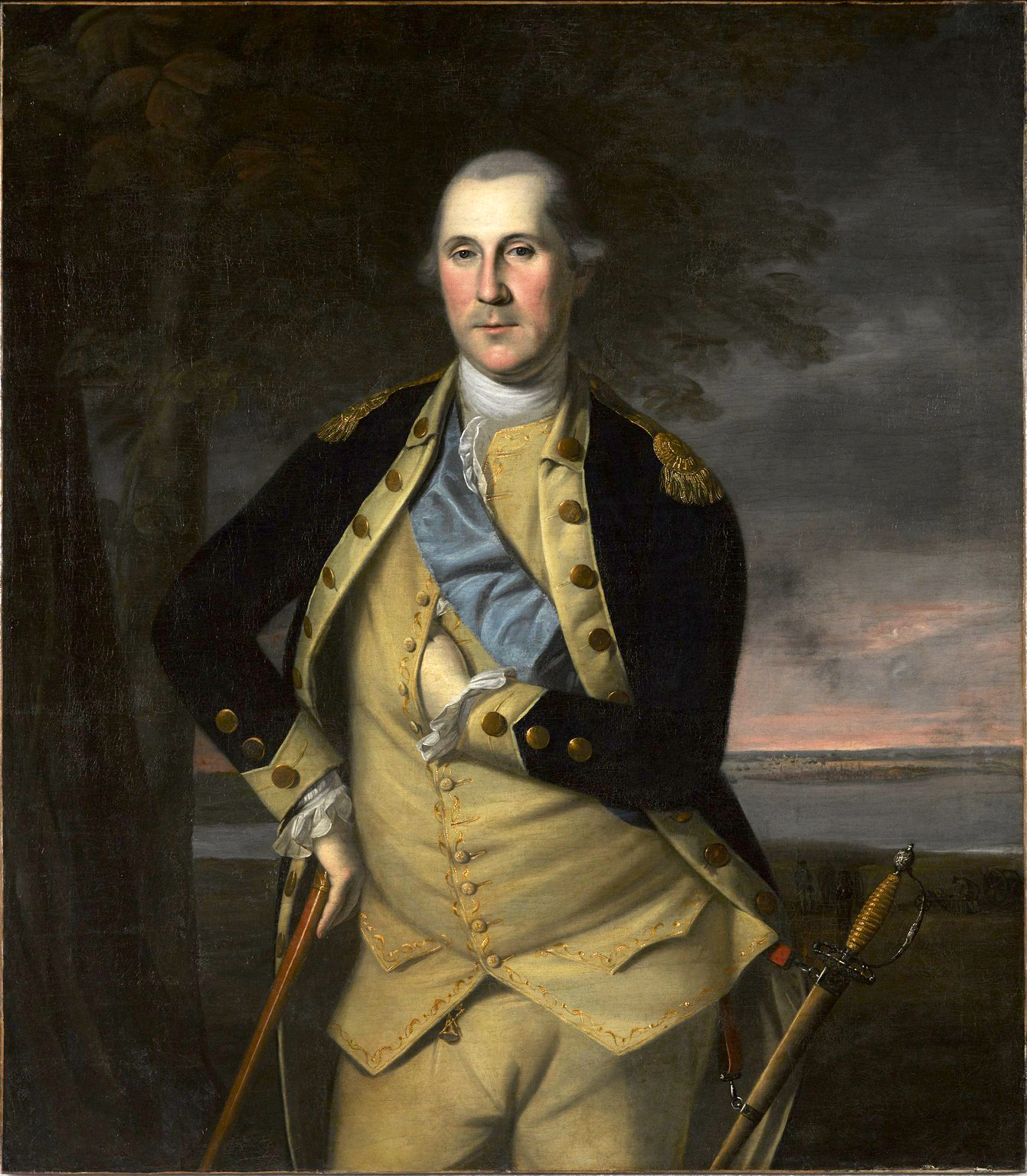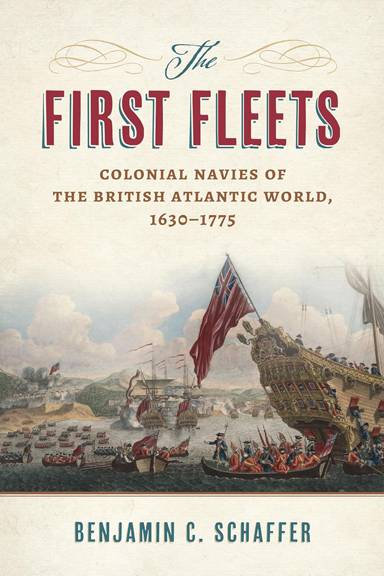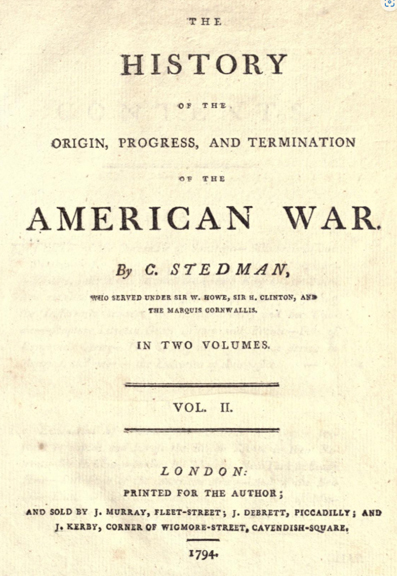
I started with an innocent question about the British Parliament’s Quartering Act of 1774: Did American Patriots list that law as one of the “Intolerable Acts” that led them to outright rebellion against Great Britain?
Some of the Revolutionary histories I’d read said that was one of the five Intolerable Acts, along with the Boston Port Bill, Massachusetts Government Act, Administration of Justice Act, and Quebec Act. Other books said Americans complained of only four Intolerable Acts, and the Quartering Act didn’t make the cut. So I decided to check what writers had said in the 1770s.
But I couldn’t find any example of colonists discussing the “Intolerable Acts.” I looked for that phrase in Readex’s Archive of Americana database, which includes most newspapers and pamphlets published in the colonies that became the U.S. of A. I looked in the George Washington Papers at the Library of Congress, the John Adams Papers at the Massachusetts Historical Society, the official papers of the Continental Congress and its delegates’ letters, Peter Force’s American Archives, and all the other searchable text databases I knew. When the Google Books Ngram Viewer and the Founders Online beta site became available, I tried those.
Since eighteenth-century spellings and wonky O.C.R. transcriptions can produce odd results, I tried variant spellings (“intollerable”) and phrases (“Intolerable Laws”). But still I have found no examples of authors in Revolutionary America using that term.
Occasionally the phrase “intolerable acts” appeared in books of the period, all British rather than American. But those books applied the term to historical events quite distant from Parliament’s recent laws, such as Henry III’s dispute with the papacy in 1258 (in Temple Sydney’s A New and Complete History of England in 1773, largely cribbed from Thomas Mortimer’s A New History of England in 1764) and Dutch policy toward Indian governments (in the Abbé Raynal’s A Philosophical and Political History of the Settlements and Trade of the East and West Indies, translated by John Justamond in 1776).
It’s possible that someone will find an example of the phrase “Intolerable Acts” in a newspaper essay or letter from America on the eve of independence. But I feel safe in saying that the phrase was not widespread, and thus not the standard American term for Parliament’s new laws of 1774.
American Patriots did occasionally deploy the word “intolerable,” as in the Continental Congress’s resolution on 9 June 1775 authorizing Massachusetts to hold legislative elections: “…inconveniences arising from the Suspension of the powers of Government, are intolerable…” But they did not reserve that adjective for Parliament’s 1774 laws, and that’s still not the whole phrase “Intolerable Acts.”
The label “Coercive Acts” does appear in period sources, including a very prominent one: George III’s speech to Parliament on 26 October 1775. The king insisted:
The Resolutions of Parliament breathed a Spirit of Moderation and Forbearance: conciliatory Propositions accompanied the Measures taken to enforce Authority, and the coercive Acts were adapted to Cases of criminal Combinations amongst Subjects not then in Arms.
Not many American writers used that term, however. They usually referred to specific laws and policies that they disliked, sometimes by official names (“Port Bill”) and sometimes in their own terminology (John Adams, Samuel Adams, Joseph Hawley, and other Massachusetts Patriots referred to the Administration of Justice Act as the “Murder Act”).
It appears that the phrase “Intolerable Acts” developed gradually over the nineteenth century. In 1810, Robert Bisset’s History of the Reign of George III characterized the Congress’s October 1774 “Address to the People of Great Britain” this way:
Their grievances (they said) arose from eleven acts of parliament passed in the present reign; but the most intolerable resulted from the three acts of the last session of parliament, respecting the colony of Massachusetts Bay, and the law for extending the limits of Canada.
That sentence applied the label “most intolerable” to four of the parliamentary laws at issue (thus leaving out the Quartering Act). However, the Congress’s actual address of 1774, drafted by John Jay, never used the crucial word “intolerable.”
In 1826, the Massachusetts statesman and orator Edward Everett gave an Independence Day speech in Cambridge that described the Patriots this way:
Not only was the independence, for which they struggled, a great and arduous adventure, of which they were to encounter the risk, and others to enjoy the benefits; but the oppressions, which roused them, had assumed, in their day, no worse form than that of a pernicious principle. No intolerable acts of oppression had ground them to the dust. They were not slaves rising in desperation from beneath the agonies of the lash; but free men, snuffing from afar “the tainted gale of tyranny.”
Everett thus applied the phrase to the Revolutionary conflict, but in a general way. His speech was widely reprinted in nineteenth-century America.
In The American Laborer in 1842, co-published by Horace Greeley, an author complained:
The degrading restrictions imposed upon our industry while British Colonies, were intolerable acts of oppression, and enforced with the utmost rigor by the Parliament of Great Britain.
Again, this ante-bellum writer used the phrase “intolerable acts” in a general sense, in this case referring to Britain’s manufacturing and trading laws rather than the measures of 1774.
It took another forty years before the phrase “Intolerable Acts” became a standard term for Parliament’s 1774 laws. And the impetus seems to have come from textbook writers seeking a way to organize facts for students. A History of the United States for Schools, by Alexander Johnston (1885), lists “The Four Intolerable Acts,” applying Everett’s term to the four laws that Bisset had said were most grievous. In 1893 A History of the United States, a rival school textbook by Allen C. Thomas, went further and listed “The Five Intolerable Acts.” That’s when the Quartering Act of 1774 entered the picture.
Within a few years, a new orthodoxy appeared in American textbooks and popular histories: though authors continued to differ on whether there were four or five parliamentary bills involved, most wrote that British politicians had called those laws the “Coercive Acts” while Americans had labeled them the “Intolerable Acts.” Soon the latter became a standard historiographical term. And yet no one quoted a Revolutionary-era source.
In discussing the American Revolution, it might be convenient for us to refer to Parliament’s controversial laws of 1774 as the “Intolerable Acts.” After all, we use other terms that are latter-day coinages, such as “Boston Tea Party,” “Newburgh Conspiracy,” and “Year of the Hangman.” But we should be aware that “Intolerable Acts” isn’t how the Patriots of 1774 expressed their opposition.








2 Comments
As usual, another thoughtful article from Mr. Bell. I re-checked the Declaration of Independence which wasn’t much help in explaining Intolerable Acts (with initial caps) and intolerable acts (i.e. acts that are not tolerable). Two things, at least, are apparent: it’s pretty clear that the recitation of the “long train of abuses and usurpations” or “repeated injuries and usurpations” were intolerable or, as would be characterized by the document, insufferable, and there is a peculiar system of capitalization that seems to persist throughout the Declaration and other writing of the period. Perhaps the “Intolerable Acts” resulted from the evolution of a description–the acts that were intolerable–into an historical noun much the same way that a war between the states became THE War Between the States. Colonial English capitalized nouns so if the words, intolerable acts were used the “A” would be capitalized whereas the “I” would not. With the American penchant for lists and non-interpretive way of teaching history, I think Mr. Bell’s suggestion that the Intolerable Acts were more of a convenient way of informing students than an historical reality. But, I guess, this is what some educators do. Suffice to say, it’s nice to have a J. L. Bell (and others) around to shine a bright light on historical assumptions.
And, some say “there’s nothing new under the sun.” Ha! I well remember as a kid sweating over the Intolerable Acts….it never occurred to me (or my geography/history/driver ed. teacher) that the term wasn’t 18th century correct. Thanks!